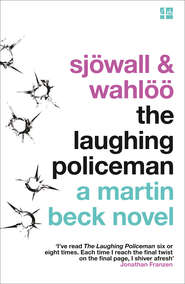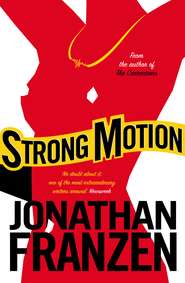По всем вопросам обращайтесь на: info@litportal.ru
(©) 2003-2024.
✖
The Twenty-Seventh City
Автор
Год написания книги
2018
Настройки чтения
Размер шрифта
Высота строк
Поля
FAG!
NIGGER!
It stopped. It had to. Sonnenfeld was dragging Archie down to the vice-principal’s office. Still feeling the pressure of attention on her, Luisa laid her cheek on her desk and shut her eyes. Outside, a pep parade was approaching to the tune of “Old Wisconsin.”
On with Webster, on with Webster Fight fight fight fight fight
The trumpeter had to slur and blurt to keep up with the singers. As the group passed the door, Luisa heard footsteps. Some of the class was deserting. She heard a match struck and raised her head. Janice Jones was lighting a cigarette.
Tonight Luisa was supposedly going to the Bonfire and then staying over at Stacy’s. Actually she was going out to dinner with Duane and spending the night with him. There had been a lot of this supposedly-actually in the last three weeks. On her birthday it had gotten complicated. Stacy had even called Luisa’s mother for suggestions about what kind of breakfast and what kind of presents. Stacy had a mother like Duane’s, the convenient sort of parent who worked full-time and who’d believe there had been a party in her house even if there hadn’t been. Luisa wasn’t as much afraid of getting caught as she was sure that one of these weeks, in her tiredness, she’d forget which side of the window she was on and do something stupid at home, like French-kissing her mother or calling her father “Baby.” She could feel the impatience inside her. Why don’t people who like each other kiss all the time? Why do people have to lie? She was feeling more honest and acting less honest. It was a dangerous mixture, like gasoline and wine, like fever and chills. She still had a cold, sort of a permanent cold, the sense that none of the things that used to matter mattered anymore. She could do whatever she wanted. She could just say: “Give me a cigarette.”
Janice Jones looked astonished. “They’re menthol.”
Luisa shrugged. When the match was held she inhaled lightly to keep from coughing. To her relief the smoke was mild, like a breath of mothballs. Janice Jones folded up her poems and stuffed them roughly into her purse. She looked at Luisa. “Bye,” she said. It was the friendliest she’d ever been.
“See you.” Drawing on the cigarette, Luisa felt almost as cool as Janice. Unfortunately the only two kids left in the room to appreciate her now were Alice Bunyan, who sketched horses during class, and Jenny Brown, who had large sad eyes and a lisp, wore overalls, and never knew the answers. Neither cared about Luisa. She closed her eyes. She felt a tiny breeze, a feathery impact on her stomach—the ash breaking loose. She opened her eyes.
Sonnenfeld.
He was leaning with both hands on the front desk in her row. He was staring at her. “May I ask what you’re doing?”
She didn’t answer. She dropped the cigarette and smashed it with her heel. Sonnenfeld laid a green slip on her desk. Smokig i classmm. “Sorry,” he said coldly. “I’d expected more from you.”
She gathered her books and shouldered her purse. Somehow her body couldn’t believe it was leaving. The vice-principal could suspend her for three days for smoking, and barring that, a call to her parents was virtually assured. At the door she stopped and looked into the hall. There were ruptured oranges on the floor, and construction-paper artwork on the doors of lockers belonging to members of the football team. The pep club had drawn crude portraits of each member and given him a slogan. #65 WILLY FISHER “DR. MEAN GUY.” The lockers looked like tombs. Luisa turned back uncertainly to Sonnenfeld.
He was seated on his desk with a book in his hand. He licked a finger, turned a page, and addressed his two remaining students. “So much—depends,” he said.
“Just leave those spaces blank, White.”
“Done. What do we say? Gateway Arch?” RC’s fingers played the keys. Gateway Arch. “Address?”
“Forget the address.”
“Shot in the leg, right?”
“Very funny. Southern leg, eastern face, hit by automatic fire.”
… automatic fire. “Means?” RC said.
“High-powered automatic rifle firing steel bullets.”
… steel bullets.
“Object of attack unknown. Distinctive feature: pattern of dents traced the letters O and W. Rest of that column blank.”
… letters O and W. “Now, I know the suspects,” RC said.
“Shut up, White. I’m dictating. Understand? Name unknown, sex male, height five-ten to six-two, everything else unknown.”
Unknown. Unknown. Unknown.
“Bottom of the page. Three-sixteen a.m., November et cetera, Donald R. Colfax of Gateway Security Systems, 1360 DeBaliviere, telephone three three six, one one seven one—reported the sound of gunfire near the southern end of the Arch. New paragraph. Three-eighteen a.m., Officers Dominick Luzzi and Robert Driscoll—double z-i, White—dispatched to the scene by radio. New paragraph. Three-twenty a.m., Colfax stated that upon hearing the gunfire he hastened in that direction from his desk in the northern underground lobby of the Arch.”
“Hastened” RC said, “in the direction of a machine gun?”
“Appearing at the location of the shooting, he glimpsed—”
… lobby of the Arch.
“—the above-described suspect fleeing through the trees to the south of the Arch. Colfax stated that the suspect was carrying—”
“Luzzi, phone!” Desk Sergeant McClintoch barked.
“Take a break, White. Appreciate the circumstances. My wife’s ten months pregnant. Relax, take a break.”
RC relaxed. He peered into the lunch bag Annie had filled for him. Egg salad on rye, brownies, and an apple. He was starving, but he wanted to eat late because he had a Legal Procedures class from six to eight at the Academy. Then tomorrow he had the day off. Tomorrow was Thanksgiving. The precinct-house atmosphere was pre-holiday, a little frantic.
The man at the next desk was scowling as he hunted and pecked. RC, who’d typed a million histories in the Army, was a ten-finger man. In the Army he’d trained on a machine gun, too. “Aim, don’t spray. Pick a target, five shots, next target, five shots. Ata-baby.” But machine guns weren’t precision instruments; you’d need damn strong arms to write something with one, even just the initials of your terrorist group. If RC ever got challenged to a duel at dawn, he’d choose a typewriter for his weapon. Rat-a-tat, rat-a-tat. The alphabet at ten paces.
He took another look at his lunch. Ten more minutes, he told himself, picking at the rip in the vinyl cushion of his chair. On the green wall two desks to his right was a 12 × 15 glossy of Chief Jammu with Sergeant Luzzi, taken in August on the steps of the precinct house. RC himself had only talked to the Chief that one time after the explosion, before he’d signed up, and he’d only seen her in person one other time, when she gave a talk to the new recruits at the end of their first week. He couldn’t remember a word of what she’d said, but it was good, whatever it was. And he had no problem with how they’d been treating him, aside from some superciliousness on the part of the younger white officers. It was a tight ship, this department, a lot more electrifying than the Cold Ice Company and a lot less dumb-assed than the Army. When they tested his gun skills here and he passed the test, they told him to stop going to the range and assigned him extra hours of office work. He put in thirty hours a week—work-study, the Chief’s idea. With all this plus the classes too, he was busy. But in February he’d graduate and things would be a little easier.
Luzzi was still gabbing on the phone. Didn’t look like his wife was delivering yet. It would have taken Luzzi nearly an hour (plus however long he spent on the phone) to type this report that RC could do in ten minutes. As far as RC knew he was the fourth-best typist in the whole first precinct. He’d heard officers say: “In a hurry? Take it to White there, if you don’t mind his lip.”
The only real ragging these days came from Clarence. “I swear to God,” he said, “I never thought I’d be sorry to see you moving up. But even ice beats the heat. I hate to see you playing their game.” Their game was the Chief’s game. Lately Clarence had been hitting his golf drives too fat. He wasn’t on speaking terms with Alderman Struthers, and his business was hurting. Not hurting too bad (this city never ran out of junk to demolish) but still hurting. RC couldn’t make Clarence see that this had nothing to do with the Chief.
“Read it back, White?”
Luzzi had returned, and RC turned back to the typewriter. “Colfax,” he read, “stated that the suspect was carrying …”
“A weapon,” Luzzi said. “A weapon.”
“Big surprise,” RC said, and waited to be told to shut up.
At company headquarters in South St. Louis, Probst watched Bob Montgomery and Cal Markham, his vice presidents, file into his office and take chairs. They were here to plan Westhaven strategy. “Well?” Probst said.
“We get a day like this,” said Cal, “it changes things. This is snow weather.”
Outside the window, in an afternoon sky that was almost black, a pigeon spread its wings and decelerated, like a newspaper unfolding in the wind. They always flocked around the precinct house across the street.
“It’s not snowing in Ballwin, is it?”
“No,” Cal said.
Bob gave Cal a sharp glance. “Flurries.”
“How’d we get into this mess?” Probst said.
“We didn’t know how big the sucker was. We knew, but we didn’t.”
















